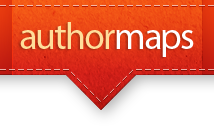Publisher vs. Author Marketing
Which kind of marketing is better for your book?
A recent study showed that the main reasons authors gave for choosing to go with a traditional publisher was publishers’ book distribution connections. This is unquestionably an advantage for authors.
But the third most-prevalent reason is publisher’s marketing services. Is this really such an advantage?
Here’s the difference between how publishers and authors market books. Publishers market many book titles in their publisher’s catalog(s). Authors market only their own titles. Now this isn’t the whole story.
Publishers sometimes focus more on some author’s books than others. They promote potential “best-sellers” more heavily than other books.
The main distinction is that your publisher will divide its time and resources among many authors’ books, while your time and resources can be devoted mainly to your own book. Further, some publishers do very little marketing, other than sending out review copies and a publisher’s catalog.
According to Alan Rinzler, in “Good Day Sunshine for Writers” in Forbes magazine:
Fact: Nearly all published books – conservative estimates range between 80-90 percent – lose money. These books don’t earn out their advances, don’t have second printings, they sell in the low four digits at best, are returned from the retail accounts and pulped or recycled.”
This is why smart authors create their own web/blog sites for their book(s). Smart authors are promoting their own books, sometimes along with other authors’ books, using Twitter or Facebook contests. These are two effective marketing tools for selling books.
The best strategy for authors with a publisher is: do your own marketing and coordinate it with what your publisher does to market your book. What about you? Have you decided how to get your book into libraries?
How to decide? Get a publisher, self-publish, or both?
Pros of publisher marketing
Publishers own recognizable brand names, called “imprints,” for marketing their books – serious readers are often fans of imprints.
Seasoned publishers have well-established marketing channels – this is particularly true for books intended for libraries.
Experienced publishers can get your books reviewed by many library book review journals that self-publishers can’t get into.
Cons of publisher marketing
Publishers may focus more on building their own brand with your book – rather than making sales for you.
Publishers rarely venture into new marketing channels – especially ones for topics they don’t usually handle.
Publishers’ marketing materials are professionally written – often they are impersonal and not “from the heart”.
Pros of author marketing
Authors spend more time building a recognizable brand name for themselves and their book(s).
Authors build wider marketing channels and reach new audiences publishers don’t have time for.
Authors get their books reviewed in magazines, blogs, and social media channels that publishers can’t or won’t.
Cons of author marketing
It takes time and effort to learn to market your book – many authors are too tired after writing the book!
Most authors do not know how to market a product – they don’t know where to begin.
An author may want to get started on another book rather than marketing the one they just wrote.
Here are a few questions to ask yourself
(1) Will you write more books?
Frankly, unless you are exceptionally lucky enough to score a best-seller, this will be the only way to make money writing books. If your answer is yes, you can use the information you get learning to market your own book to market your future books.
(2) Is your topic one that has lasting value?
Be aware that many publishers tend to market books for less than a year. Bookstores send books back after six months. If you’ve written a classic work, you can keep marketing your book until it is out-of-date or until librarians “weed” it from their collections. In that case, it’s time to consider putting out a second edition!
(3) Is your topic very timely?
This is a tough one. Self-publishing and marketing your own book is much faster. Publishers often take a year or two to decide to take your manuscript and then suggest revisions to it. Can you find a publisher (or agent) who hurries things up?
(4) Are you only doing an ebook version?
Odds are that you know about publishers’ disputes with libraries over ebooks. Some publishers won’t sell to libraries. Many libraries won’t buy their ebooks at prices that publishers charge libraries. Or the limited number of “check-outs” per ebook title that publishers’ will allow libraries to make prohibits making a deal.
(5) Is your publisher able to sell books to libraries?
Unless your small or independent publisher has established a good track record with libraries and/or is able to distribute your book via Ingram, Inc., with its comprehensive catalog that many librarians subscribe to, you may face a difficult marketing climb for your book.
 |
Marketing Your Books to Libraries: An Insider’s Guide for Authors by former librarian Nancy K. Humphreys includes:
|






